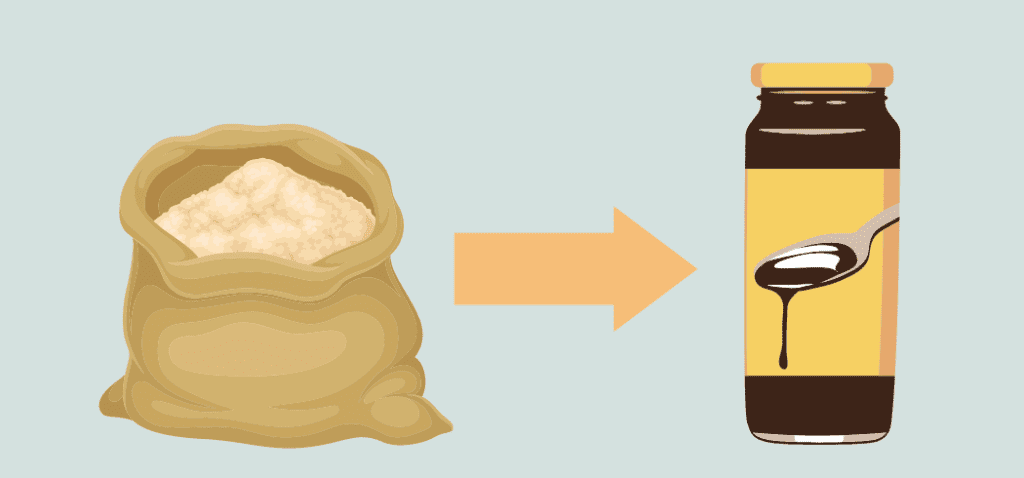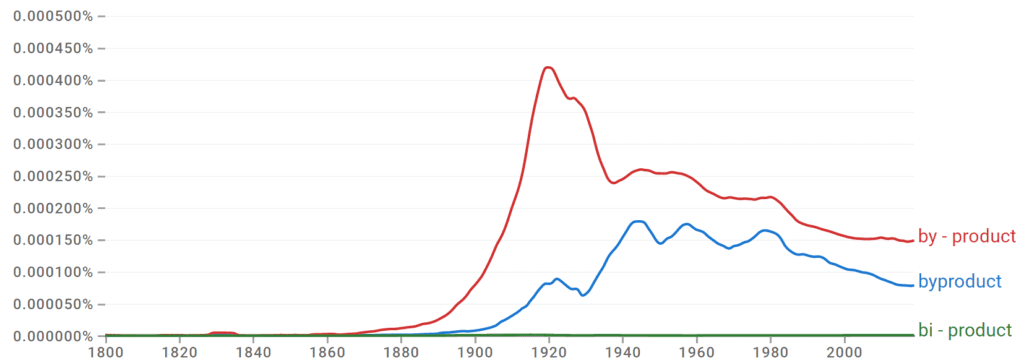Actions, processes, and behaviors have an initial result, but many also have a secondary reaction called a byproduct. Some are welcome, and some are not.
This is a well-used and recognized word in the English language, and knowing its proper use and spelling is essential.
Let’s take a look at the etymology of the word byproduct and how to use it properly in speech and writing.
What Is the Definition and Use of Byproduct?

Byproduct means an ancillary product or secondary result of a primary process. It is a product created through the process of something else or from an offshoot of the original product.
A byproduct may be an unintended, but not necessarily unwelcome, result of an initial process. For instance, the grape seed oil is a byproduct of the winemaking process, and molasses is a byproduct of the refining of sugar.
For example:
- A rich broth is a welcome byproduct of pressure cooking the turkey before finishing it off in the roaster.
- Students’ apathy towards their education is a byproduct of lazy curriculum applications focused on book learning rather than critical thinking.
- The byproduct of fast economic growth is usually a more affordable housing market.
Is It Byproduct, By-Product, or Bi-Product?

Byproduct, or by-product, is a compound word and is never written as two separate words. And it should never be spelled as bi-product since by- is the accepted English prefix spelling.
The hyphenated version, by-product, is slightly more popular than the unhyphenated spelling, but both are considered correct.
Byproduct Origins
Byproduct is a compound word made up of the prefix bi- and the root product.
By- is an Old English word from Proto-Germanic bi to mean around, about, near, in, or by.
Product is a classical Latin word from productum, meaning “something produced.” The English use, to mean “anything produced,” is from the late 16th century.
Let’s Review
A byproduct, also spelled by-product, is a secondary or additional product created by an initial process, behavior, or task.
A byproduct is usually unintended initially, but that doesn’t mean it is unwelcome. Many byproducts are used, such as bran and germ from flour processes, lanolin oil from wool processing, and buttermilk from butter processing.

Comments are closed.